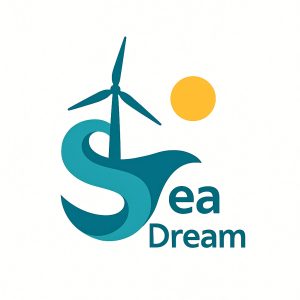About
The project aims to strengthen EU efforts towards achieving climate neutrality and achieving green energy and environmental targets. SeaDream plays a crucial role in making sure marine energy is utilized sustainably and coastal environments are preserved in line with EU policies. The development of a high-resolution water quality data service at sea is at the core of SeaDream’s mission. Data such as these are crucial to addressing specific questions regarding maritime renewable energy generation and storage. The project integrates local monitoring data and advanced modeling through the development, testing, and demonstration of novel downstream information services in an operational mode. As a result of this integration, marine activities related to the generation and storage of energy are improved, and environmental objectives are not compromised. By harnessing advanced data and fostering collaboration across sectors, the project aims to contribute significantly to the EU’s environmental and energy targets, promoting a path towards climate neutrality. In order to achieve SeaDream’s vision, a coordinated research program that thrives on collaboration is implemented. In this program, leading teams from academic and private sectors are seconded within and outside the EU. Collaborations are enhanced by periodic workshops and summer schools that disseminate the latest findings and promote market-relevant knowledge application. It is designed to foster the advancement of knowledge and career development for both experienced and early career researchers and professionals. To ensure this, secondments and training activities are structured to ensure a comprehensive approach to learning and development. Additionally, the SeaDream consortium includes nonacademic partners from various stakeholder groups, which facilitates direct application of project results.
Organisation and Partners
- Computational Mechanics (Legato)
- Department of Engineering
- Faculty of Science, Technology and Medicine (FSTM)
- University of Belgrade – Universidad de Cantabria – KARLSRUHER INSTITUT FUER TECHNOLOGIE

Project team
-
Stéphane BORDAS
-
Claudia BANDIERA
-
Inmaculada PERAL ALONSO
